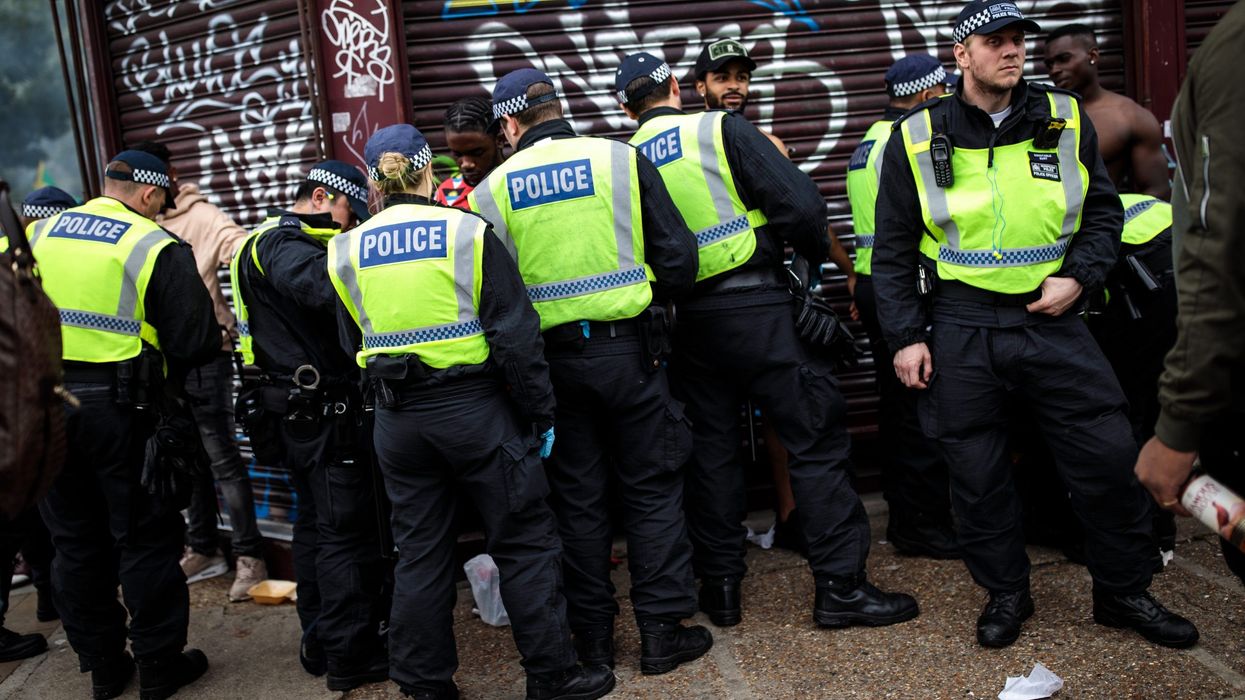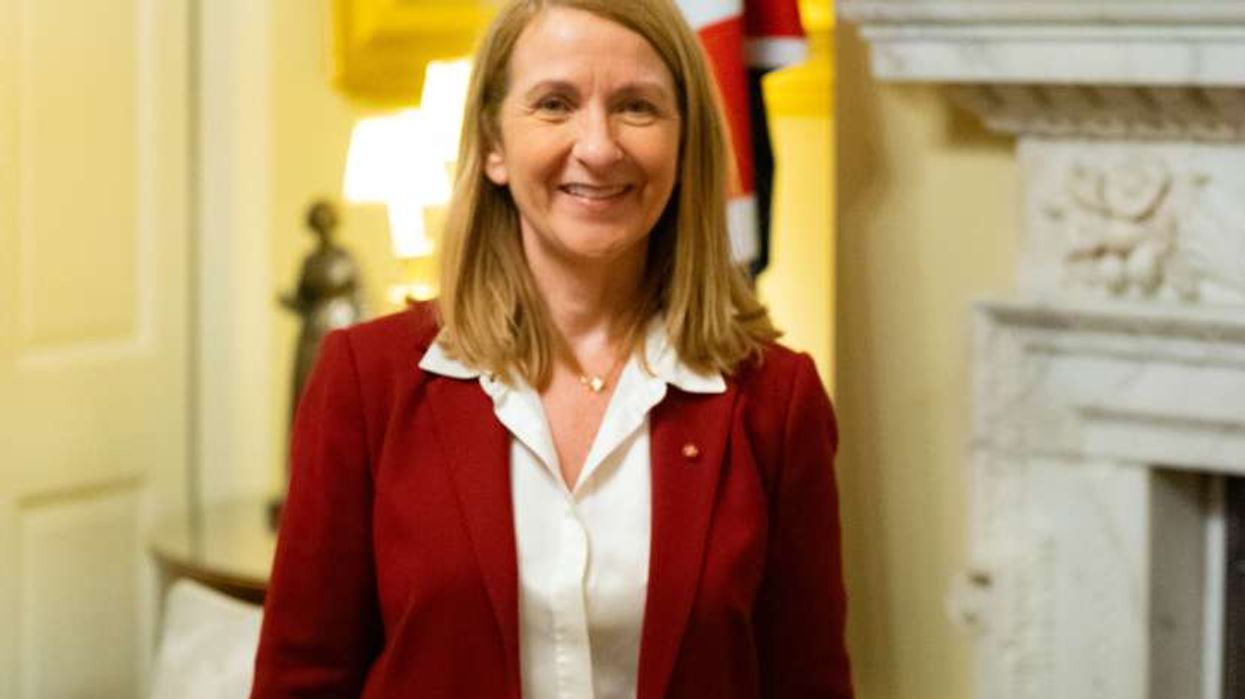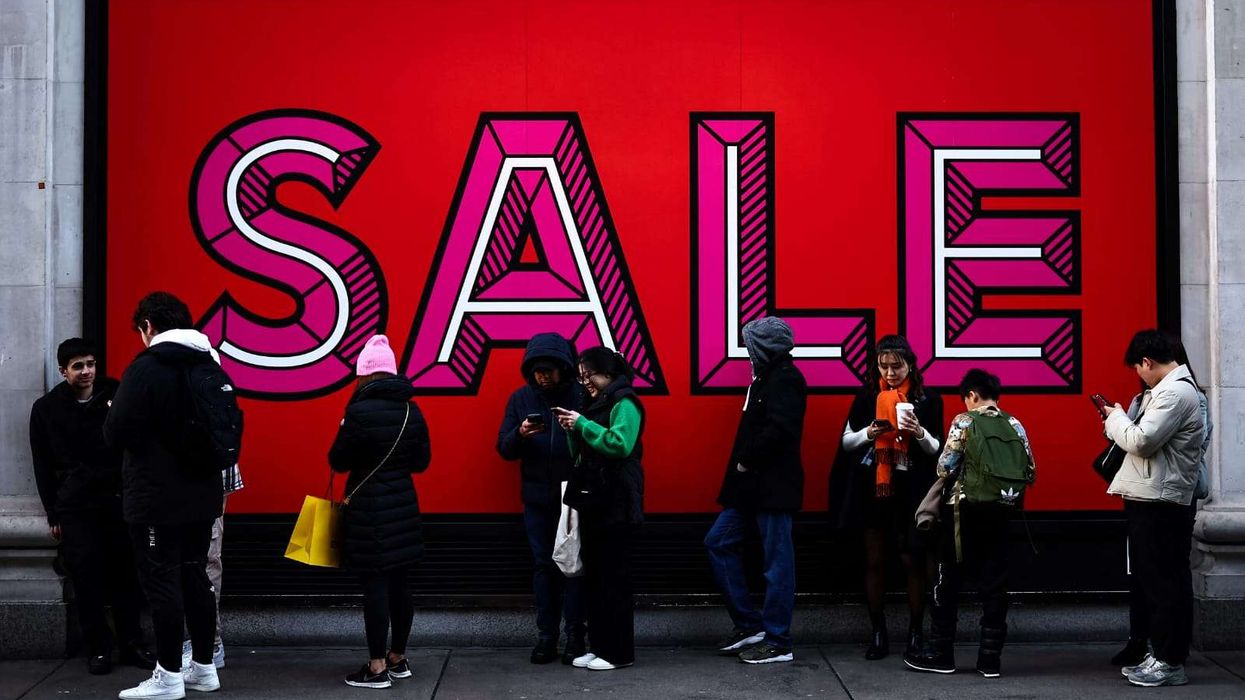Revealed: 10 south Asians stopped and searched every hour during pandemic
Police in England and Wales stopped and searched almost 10 south Asians every hour during lockdown.
Eastern Eye has found that during April 2020 and March 2021 they detained almost 86,000 south Asians.
This is a rise of more than 47 per cent on the previous 12 months, three times the national average.
The figures have troubled current and former senior Asian and black officers because, overall, most crimes went down during lockdown.
The National Black Police Association (NBPA) said our findings were “of concern”.
“Not only are their names going to the computer for having been stopped and searched, even though it was negative, there's some of them are actually being criminalised further down the field,” said its president, Inspector Andy George.
“They're ending up with criminal records for interactions which either don't have to be done or which could be done in a better way.
“It's disappointing that more people from black and Asian backgrounds were being stopped searched.
“Through the home affairs select committee and the review that was done in the Macpherson review, during Covid we’ve obviously seen more of those communities being criminalised through the issuing of Covid tickets as well.”
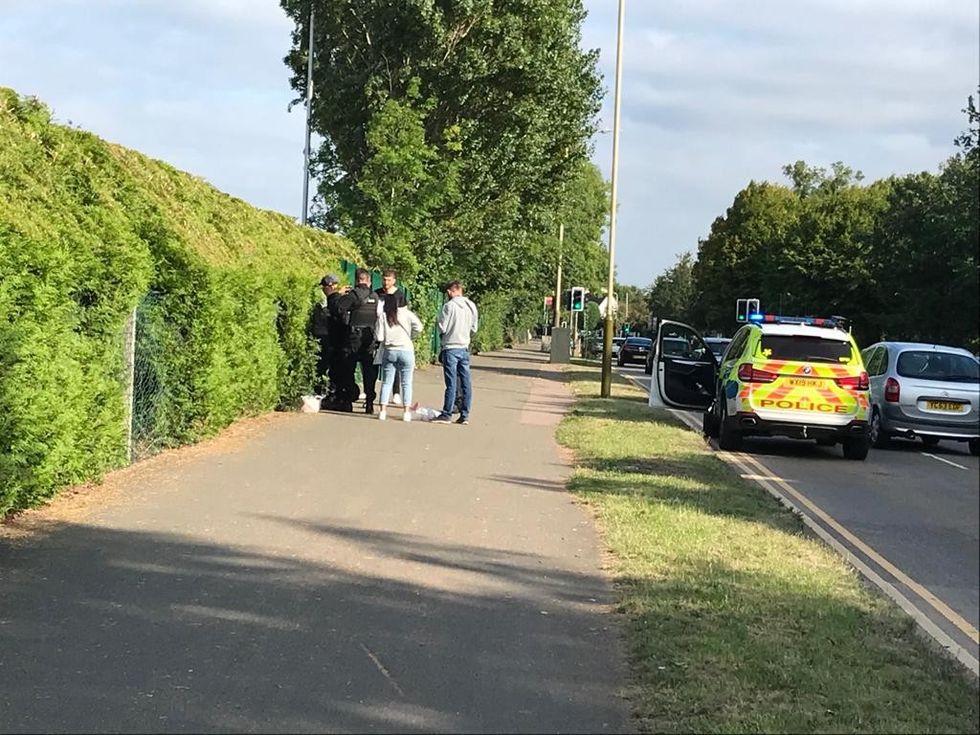
Dal Babu was a former chief superintendent in the Met, and he founded the National Association of Muslim Police.
He supports the idea of stop and search.
Babu is not surprised by the figures, but he is critical of the greater use of section 60 of the act.
“There is a crisis at the moment in terms of confidence in stop and search, and that's a challenge,” said Babu.
“It's a valuable tool, but unless it's used effectively, and unless it's used in a responsible manner, there is a difficulty that people will continue to lose confidence.
“It makes political headlines, ‘we're going to search more people’, but you risk going back to the days of lack of confidence and you still need boots on the streets
“So, the police say we're going to do all of these searches, but where are the police officers that are going to be able to do it.”
“Sus law on steroids”
Two years ago, the home secretary, Priti Patel, relaxed section 60 of the stop and search laws because she said it would make it easier for officers to tackle violent crime.
Section 60 allows officers stop us even if they don't have “reasonable grounds” to do so, if an inspector rank or above believes serious violence may take or has taken place.
The Home Office said that it had added an extra 9,000 officers to use this power.
But critics have told this newspaper, this was a return to the despised “sus law”, part of the 19th century Vagrancy Act allowing police to stop people randomly.
The sus law caused huge racial tensions in the 1970s.
Former Metropolitan Police superintendent and former founding chair of the NBPA, Leroy Logan, told Eastern Eye his former profession uses section 60 simply to satisfy officers’ egos.
“Section 60s are sus law on steroids because of the disproportionalities we've always spoken about,” he said.
“In stop and search, you're nine to 10 times more likely to be stopped and searched if you’re black than if you’re white, section 60s, it’s over 20 times more.
“You don't see a commensurate conclusion in terms of tangible outcomes, whether a weapon is found whether that person is arrested, or charged, or cautioned.
“It's quite clear that those forms of enforcement are really to massage the ego of the police services to say, are we doing something.
But the police have argued that stops and searches are intelligence-led and keep us safer.
Yet analysis of the data by Eastern Eye suggests this may not be true.
The media, and it appears the authorities too, reports stop and search figures, but it rarely looks at or exposes what happens as a result of being detained by the police.
Our analysis showed that during April 2020 and March 2021, of those south Asians stopped and searched in 42 force areas, police took no further action against 76 per cent; arrested almost one in 10; but they charged just 1.7 per cent.
Of these, we do not know how many the courts convicted.
Poor charge rate
The data suggests that during several lockdowns, more than 98 per cent of south Asians who police stopped and searched were innocent of any crime, and this raises questions about the utility of the police’s actions.
It also backs the findings by academics writing in The British Journal of Criminology in 2018.
They concluded, “We found no evidence for effects on robbery and theft, vehicle crime or criminal damage, and inconsistent evidence of very small effects on burglary, non-domestic violent crime and total crime; the only strong evidence was for effects on drug offences.
“When we looked separately at s60 searches, it did not appear that a sudden surge in usage had any effect on the underlying trend in non-domestic violent crime. In other words, we found very little evidence to support any of our hypotheses.”
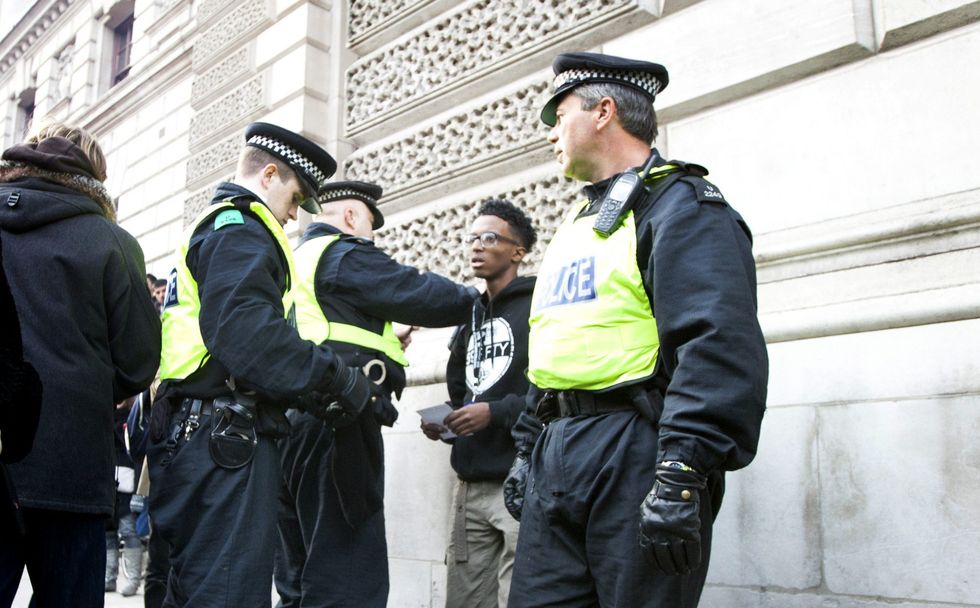
It does not surprise Logan, who wrote about the devastating experience stop and search had on him when he was 13 in his autobiography, Closing Ranks.
The book, which earlier this year was made into a BBC 1 television film by Oscar-winning director, Steve McQueen, explains Logan’s experiences in the Met, and his accusing the force of being institutionally racist at the Macpherson inquiry.
He told Eastern Eye, “There's never been a correlation between if you increase stop and search, reduce knife crime, or other forms of crime, and if you reduce, stop and search, those crimes go up.
“Even the Home Office data unit has that categorically. So, when you hear senior officers say, ‘Oh, well, in my experience, it's a very useful tool’, balderdash, it isn't.
“It has been shown to be more harmful to communities that you're trying to police in a positive citizens focused way, because of the experience they have day to day through excessive use of section one and section 60 stop and search.
“So, it's totally counterproductive.”
But the National Police Chiefs’ Council (NPCC) disagreed.
“Officers use stop and search to allay or confirm their reasonable suspicion that a person has a prohibited item on them, often avoiding the need for arrest,” said its national lead, Deputy Assistant Commissioner Amanda Pearson.
“Using charges as a way to measure the effectiveness of stop and search does not give a full picture as it is impossible to know how many crimes have been prevented.”
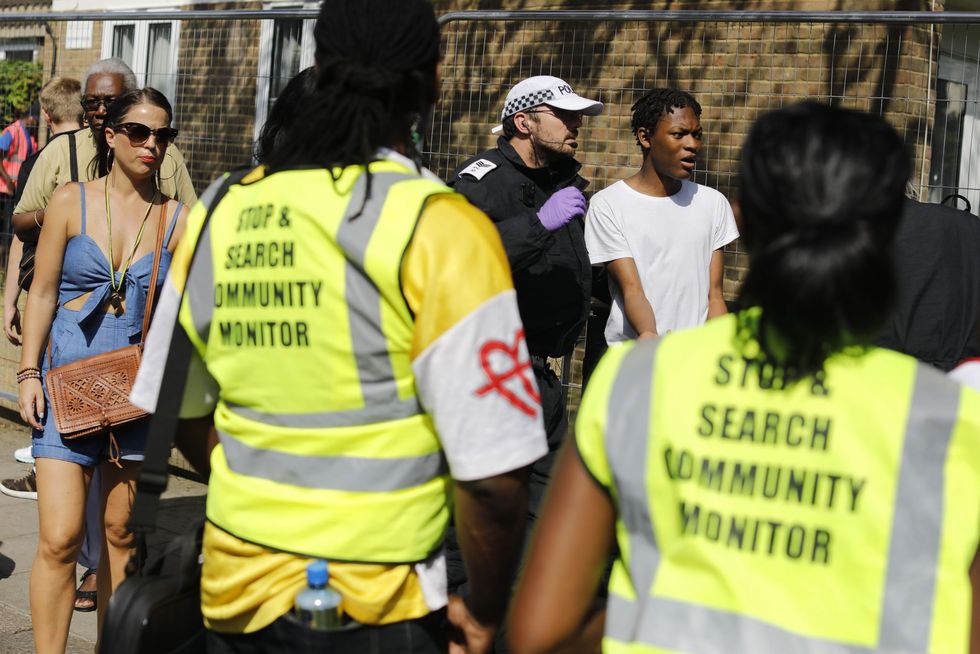
The NBPA said it would present our findings to the police minister, Kit Malthouse.
“Whenever we look at the myths and misinformation which are around the black community, representations are low in the police service,” said its president, Andy George.
“Those key decision makers at a more strategic and senior level are not representative of all the communities we serve, so there’s less understanding, less cultural awareness around the issues in those communities.
“As they move around the national decision-making model, that information intelligence gathering from a variety of sources, whenever it's only coming from majority white viewpoint, then they're prone to make decisions that work to the detriment of black and Asian communities.”
Non-recording of stops
The former Met police superintendent, Leroy Logan told Eastern Eye that unless senior bosses hold their rank-and-file officers to account, disproportionality would not be cut.
But a recent experience also concerned him.
Officers stopped him while driving for a motor violation he did not commit.
Only after they pulled him over did they ask him to step out of the car so they could search his vehicle and him.
He challenged the decision, and once they realised that he was a former senior officer, the officers let him go.
The former Met superintendent is convinced that police are now putting down road traffic violations as the excuse for stopping ethnic minorities rather than the actual reason – stop and search.
“I don't think you can leave the police to police themselves or monitor their own conduct, because over the last 10 years that's what's happened,” he said.
“Prior to that, after the first 10 years on Macpherson, we had independent oversight of all of the recommendations, in particular stop and search.
“Subsequent Labour home secretaries were able to hold chief constables to account asking what are the outcomes, not just the number of people but what are the outcomes?
“Where are the results to show that it is a tool that's being used properly, objectively, and intelligence based and it's not seen as a fishing expedition, arresting people unduly and, as a result of that, causing community tension and reducing trust and confidence of police.
“Until you get that independent oversight, you will not get an improvement whether it's section one stops section 60 because the police are not capable of being objective in this because they're so steeped in that power.”
The Met rejected this allegation.
“There is no evidence to support the allegation stop and searches are being wilfully under recorded,” said Temporary Deputy Assistant Commissioner Jane Connors.
“The claim of deliberate under reporting has been repeatedly made without substance and regular HMICFRS [the regulator] inspections and reports from scrutiny bodies have not uncovered any evidence of this.”
She also defended the use of section 60 powers.
“The decision to authorise Section 60 orders is not taken lightly and is only done so when there has been significant, serious violent crime and there is a real threat of further violence taking place.
“The effectiveness of Section 60 orders should not only take into account if any criminality was detected, but also consider whether any incidents of further violence were prevented, whether individuals were discouraged form carrying weapons, and how safe the community felt as a result.”
We asked the Home Office a series of questions, including the claim by the former chair of the NBPA.
It refused to answer our specific questions.
“She [the home secretary] needs to revisit this position that she’s taken,” said Babu.
“It comes from somebody who's never had practical experience, and quite frankly, I'm not entirely sure it's going to make a great deal of difference.”
Analysis
During April 2020 and March 2021, police in England and Wales stopped and searched 544810 people, whether they were on the streets or in their vehicles.
This compared to 458902 in the previous 12 months, a rise of almost 19 per cent.
Greater Manchester Police was the only force which did not supply figures.
Despite asking on several occasions the force, which is in special measures, was unable to explain why it could not give us data.
Yet in July, its chief constable, Stephen Watson, denied claims his force was institutionally racist because of disproportionate stop and search based on figures published in a report by the Greater Manchester mayor, Andy Burnham.
We have asked Burnham’s office, which is responsible for overseeing the force, to investigate and explain why the force cannot supply these figures.
https://public.flourish.studio/visualisation/7156176/
Although fewer south Asians are stopped and searched when compared to black and white communities, the rise year-on-year was 47 per cent, three times the national average.
What is significant is that during national lockdowns, when most crime was going down, police were stopping and searching more of us.
Why was this?
The National Police Chiefs’ Council lead on stop and search is Deputy Assistant Commissioner Amanda Pearson.
“In some forces, the reduction in overall crime levels allowed officers to be redirected towards proactive policing in violence hot spots,” she explained.
“Numerous factors, including further lockdowns, as well as proactive operations, may impact on stop and search figures.”
Pandemic increase
Some forces we contacted suggested that the pandemic was a direct reason for increases.
“Anecdotal evidence suggests that during the pandemic those undertaking street level drug offending were more apparent during the periods of lockdown in terms of being identifiable by officers as activity not consistent with lockdown guidance and legislation,” said a spokesperson for West Yorkshire Police.
Assistant Chief Constable Julia Debenham from Leicestershire Police told Eastern Eye, “There was an increase in 2020-21 most likely to be caused by the Covid related factors along with the introduction of a new policing model that created additional officers deploying in local areas.
“Officers found themselves on occasions with more capacity to undertake proactive patrols, and where people should have been in lockdown, suspicion in relation to people who were out was raised which may have led to an increase in the use of the tactic.”
For the 20 forces with the highest numbers of south Asians stopped and searched, we compared the actual percentage with the area population.
https://public.flourish.studio/visualisation/7156946/
It showed that West Mercia Police stopped proportionately five times as many south Asians than in its force area.
West Midlands, West Yorkshire, South Yorkshire, Lancashire, Bedfordshire, Staffordshire and Cambridgeshire stopped and search more than twice the proportion compared to their corresponding force areas.
West Midlands Police refused to acknowledge our request for answers.
“Complex reasons”
A spokesperson for West Yorkshire Police said, “Understanding disproportionality is complex and comparisons against simple census data averages can be unhelpful in the absence of wider context.”
DAC Amanda Pearson, the NPCC stop and search national lead said, “Work is being carried out to understand disproportionality in the use of police powers, including stop and search, so that we are able to explain the reasons behind it and reduce it where possible.
“Crime is not evenly distributed across society and disproportionate is not the same as discriminate.
“Where there is disproportionality, forces should be examining this and identifying why this is the case and, where it cannot be explained, how to address it.”
All the forces we contacted maintain that stop and search is a tool which intelligence led, effective and keeps us safe.
“We do not underestimate the impact stop and search has on communities and individuals,” said Debenham.
“We know that to maintain public confidence in its use, the power must be used in a fair and effective manner. Often our use of the tactic is in direct response to an incident reported by a member of the public.
“How effective stop and search is, is as much about investigating matters reported to us at the time, avoiding unnecessary arrests as it is about a crime being detected.”
“Vital tool”
Not only did the Home Office choose to spin, it failed to address the most basic question – if stop and search is intelligence-led, why is it that it leads to a small percentage being charged?
Instead, the police minister, Kit Malthouse stuck to the government’s mantra that it had “empowered 9,000 more officers to authorise the use of s60 stop and search powers, used in anticipation of serious violence”, even though academics and our analysis suggest there is little proof it works.
The minister continued, “Stop and search is a vital tool for removing dangerous weapons from our streets.
“Every weapon taken off the streets is a potential life saved. In the last year, stop and search has removed over 11,000 weapons from the streets and resulted in over 74,000 arrests.”
While it is true that one weapon “taken off the streets is a potential life saved”, what the government does not tell you is that arrests account for just 12 per cent of those stopped and searched, which is under one in eight of all stops.
It also does not tell you that between April 2020 and March 2021, the police charged under two per cent of the over half a million people they stopped and searched.
Of those charged, it is not clear how many were finally convicted.
If past form is anything to go by, that figure is likely published without fanfare long after journalists have forgotten the question: what does the data really say about the usefulness of stop and search?
The president of the NBPA, Andy George, is clear that officers stop and search black and Asian people for drugs, rather than weapons.
“Whenever you're getting into the facts and figures, the majority of stop searches are for drugs, not for weapons, there's only like, 16, 17 per cent of the time that you're stopping people for weapons,” he said.
“Sixty, 70, 80 per cent of the time, it's for drugs, it's for the smell of cannabis or for cannabis.
“The black community research indicated that they're less likely to actually carry it [a weapon].”
Police stop and search their own
What may concern Eastern Eye readers is that black and Asian police officers are routinely stopped and searched by their colleagues.
The president of the National Black Police Association, Andy George, told us that “a lot of our colleagues in the NBPA actually have” experienced being stopped and searched.
The former Met chief superintendent, Dal Babu, knows that to be the case at first hand.
“I lost count the number of times I got stopped, and I remember having a conversation with my senior management team that I was the only one who'd ever been stopped and searched,” he recounted.
“I think lived experiences are very important. I remember one particular occasion particularly well.
“I was cycling home after early turn, and I was put up as a suspect for a stabbing.
“I thought I need to stop being paranoid because a police helicopter was following me, and then I saw and heard sirens.
“Then there's a police car cut across my bike and took out their truncheon and ran towards me. Fortunately, they recognised me, and they said, cancel, cancel, it’s an off-duty sergeant.
“So, I think that the lived experiences of minority officers are very, very important, and I don't think there's ever been a study looking at those experiences of south Asian and black police officers.”
